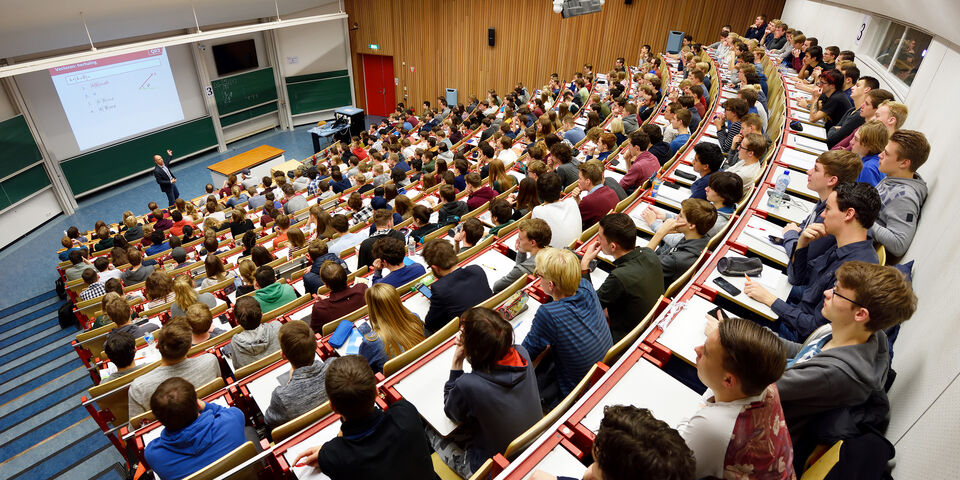“Therefore, large group lectures will again be offered soon”, Rutte said during the press conference on Tuesday. Students attending won’t have to maintain the social distance of 1.5m either.
Wearing face masks at school or university will also no longer be required as of 25 September. So up to and including next week students and staff still have to wear a face mask in the hallways, but not afterwards.
“The advice that you should take self tests regularly, for example twice a week, remains in place in order to reduce the risk of infection.” Students and staff can still get free home testing kits.
Social distancing
The ‘six-foot society’ will thus disappear, even though the virus is still circulating. It’s still sensible to give each other enough space, Rutte maintained, but it will soon no longer be mandatory.
For access to cafés, cinemas, theatres and similar venues, people will soon have to show their coronavirus certificate, for example by producing a QR code on their telephone. You get the certificate when you’ve been fully vaccinated, can prove that you recovered from Covid, or can produce a negative test taken in the last 24 hours.
But these safe entry certificates won’t be required for higher education, at least that is the standpoint right now. This could change if infection rates start to rise again, the Cabinet said in an earlier announcement.
Students are going to be very happy with this decision, Lisanne de Roos, chairperson of the Dutch National Students' Association, believes. “Since the reopening of higher education two weeks ago we’ve been swamped with enthusiastic comments from students who have the feeling that now they can really be students again – finally after 18 months of restrictions. When these last measures are removed, there will be even more reason to celebrate.”
Online
During the first weeks of the academic year many students were still attending classes online, despite the easing of restrictions. According to De Roos, that was caused by the maximum group size of 75 students. Right now, in her view, there is “nothing more standing in the way of full face-to-face classroom teaching”, although she hopes that universities will continue with online teaching for those students who are more vulnerable.
The Ministry of Education states that teaching can return to the way it was before the coronavirus measures were issued, “but first allowing enough time for the adjustment of timetables”.
The universities sound happy but cautious. It’s good news for students and lecturers that they “can return to campus in a more or less normal way”, Pieter Duisenberg of the Association of Universities in the Netherlands says. “We’re going to be looking at how we can make use of the extra space in a safe and responsible way.”
Vulnerable
He’s taking into consideration the fact that “vulnerable students and faculty” will not feel safe when the coronavirus restrictions are relaxed. “As we are doing now, the universities will continue to consult with them in order to arrive at the best solution.”
Universities of applied sciences were also keen to see the maximum group size in higher education removed, they let it be known at the start of the new academic year. The Netherlands Association of Universities of Applied Sciences were really going to push for this, chairperson Maurice Limmen said in August.


Discussion